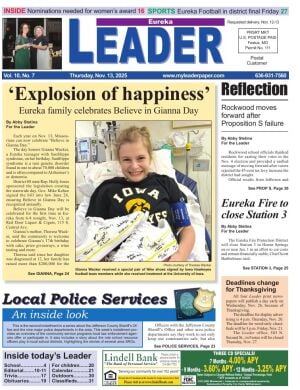Homelessness is a pervasive and enduring issue in Columbia, but community leaders agreed that it isn’t hopeless during a town hall Wednesday night on the University of Missouri campus.
The Mizzou Young Democratic Socialists of America hosted a panel featuring Columbia City Council members Valerie Carroll and Vera Elwood. Susan Maze, a worker with the Boone County Community Bail Fund, and Judy Carter of Columbia Mobile Aid Collective also spoke at the town hall.
The group gathered to discuss homelessness and over-policing in Columbia before an audience of over 70 people.
“We want to set a student narrative,” YDSA moderator Cruz Lewis said. “We want to show that the solution students want isn’t to criminalize homelessness, not just because of the dignity of the unhoused, but also because increased policing is bad for students, too.”
Speakers described homelessness as a systemic issue tied to gaps in housing, public health and the legal system. Columbia’s homeless population is estimated to have risen from 270 to approximately 323 people, according to a 2024 report.
Elwood said the estimate is “dramatically undershot.” She noted that homelessness takes many forms, from couch surfing to living on the streets, and as a result, the count of the homeless population is likely unreported.
Local nonprofits such as Room at the Inn, Loaves and Fishes, Turning Point and Harbor House continue to provide aid, but leaders said demand outpaces resources.
The panel pointed out that the complexities of homelessness require collaboration to effectively help those in need.
“We need dialogue and partnership,” Carroll said. “Not to do it for the media, but for who we are trying to serve, both housed and unhoused.”
Members of the panel commented on over-policing and local ordinances, especially the proposed Pedestrian Safety Ordinance, which several said would disproportionately affect the homeless population. The proposed ordinance would ban pedestrians from standing on roadway medians, among other policies.
Despite the challenges, the conversation focused primarily on the city’s positive efforts to address issues of homelessness. One of the most promising initiatives is the Opportunity Campus, a comprehensive service hub for the homeless population set to open in the spring.
Carroll and Elwood pointed to community-oriented policing as another positive step.
“People miss knowing their police,” Elwood said. “Community-oriented policing is about rebuilding that trust.”
The Columbia Police Department currently has a Homelessness Outreach Team, which responds to incidents and routinely checks homeless encampments
Within the court system, Municipal Court Judge Cavanaugh Noce presides over the Community Support Docket. The docket is a special monthly court date which aims to connect homeless individuals with local resources.
The evening ended with a call to action for students. The panel urged students to stay engaged in local issues, from City Council meetings to upcoming elections.
“Come talk to us, have your voice heard,” Carroll said. “That’s what changes local politics.”
Susan Maze emphasized that small acts of care have lasting effects.
“If they’re cold, give them a blanket. If they’re hungry, give them food,” she said.
The panel also encouraged students to volunteer and build relationships in the greater community, emphasizing that students have more power than they think they do.
“We need to get as creative as possible to protect our neighbors,” Carroll said. “As creative as people are to disband them.”


